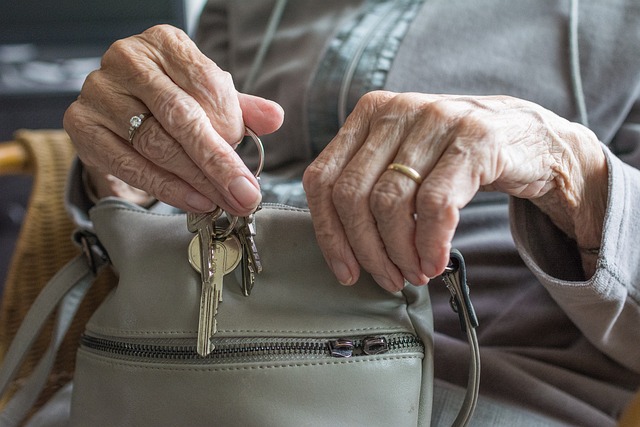End-of-life planning involves creating legal documents like living wills, healthcare directives, and advanced care directives with the help of an end-of-life attorney. These documents ensure your medical treatment preferences, including palliative or hospice care, are communicated clearly to healthcare providers. By streamlining decision-making processes, an attorney empowers you to maintain autonomy while receiving compassionate care aligned with personal choices during challenging times. Comprehensive end-of-life planning integrates legal services, palliative care, and hospice options, providing peace of mind and control over end-of-life care for individuals and their loved ones.
Achieving peace of mind is possible with thoughtful end-of-life planning. In this comprehensive guide, we explore the benefits and essential components of preparing for your final years, including understanding advanced care directives like living wills and healthcare powers of attorney. We delve into the crucial role an end-of-life attorney plays in navigating medical decisions and highlight the importance of integrating palliative care, hospice, and legal services for holistic planning.
- Understanding End-of-Life Planning and Its Benefits
- Key Documents: Living Will, Healthcare Directive, and More
- The Role of an End-of-Life Attorney in Care Decision-Making
- Integrating Palliative Care, Hospice, and Legal Services for Comprehensive Planning
Understanding End-of-Life Planning and Its Benefits

End-of-life planning is a crucial aspect of ensuring peace of mind and securing your wishes for future medical care. It involves creating legal documents like living wills, healthcare directives, and advanced care directives that communicate your preferences to healthcare providers and loved ones. These documents empower you to make informed decisions about your treatment, even if you become incapable of doing so yourself.
By consulting an end-of-life attorney, you can navigate the complexities of these legal processes with ease. They guide you in establishing medical directives, designating a medical power of attorney, and planning for palliative care or hospice care as needed. Such proactive measures not only ensure your autonomy but also provide clarity during challenging times, allowing you to focus on receiving the best possible end-of-life care while surrounded by peace of mind and the love of your loved ones.
Key Documents: Living Will, Healthcare Directive, and More

When considering end-of-life planning, several key documents play a crucial role in ensuring your wishes are respected and your peace of mind is maintained. A Living Will, also known as an advance directive for healthcare, allows you to specify treatments and care preferences should you become unable to make decisions. This document guides medical professionals on providing the level of care you desire, even if it deviates from standard practices.
Complementing the Living Will is the Healthcare Directive, which further empowers you to appoint a healthcare agent. This individual acts as your advocate, making decisions based on your written preferences and values. Additionally, an Advanced Care Directive or Medical Directive outlines specific end-of-life care wishes, including choices for life support, resuscitation, and palliative care planning. Involving an end-of-life attorney in this process ensures these documents are legally sound and executed correctly, providing clarity during what can be a challenging time.
The Role of an End-of-Life Attorney in Care Decision-Making

When facing end-of-life scenarios, having a comprehensive plan is invaluable. An end-of-life attorney plays a pivotal role in facilitating care decision-making during this challenging time. They guide individuals and families through creating essential legal documents such as living wills, healthcare directives, and advanced care directives. These documents ensure that your wishes regarding medical treatment, including palliative care or hospice care planning, are clearly communicated to healthcare providers.
By involving an end-of-life attorney, you can rest assured that your medical power of attorney is legally sound. They help navigate the complex landscape of end-of-life care planning, ensuring your rights and autonomy are protected. Their expertise facilitates smooth decision-making processes, allowing you and your loved ones to focus on what matters most—receiving compassionate palliative or hospice care while honouring your personal choices.
Integrating Palliative Care, Hospice, and Legal Services for Comprehensive Planning

Integrating palliative care, hospice, and legal services is a holistic approach to ensuring peace of mind during one’s later years. End-of-life planning involves creating comprehensive documents like living wills, healthcare directives, and advanced care directives that communicate an individual’s wishes regarding medical treatment and care preferences. A competent end-of-life attorney can assist in drafting these critical documents, ensuring they align with local laws and reflect the client’s desires accurately.
This strategic planning also includes discussing options for hospice care and understanding the role of a medical power of attorney. By combining legal expertise with medical considerations, individuals can have greater control over their end-of-life care. This proactive approach not only eases the burden on loved ones but also promotes receiving the right kind of care at the right time, in line with personal goals and values, ultimately enhancing quality of life during the final stages.
End-of-life planning is not just about preparing for the future; it’s a gift to oneself and one’s loved ones, ensuring peace of mind and respectful care during life’s final chapters. By proactively creating key documents like living wills and healthcare directives, individuals can communicate their wishes clearly. An end-of-life attorney plays a vital role in navigating complex medical and legal landscapes, while palliative care and hospice services complement this planning by focusing on comfort and quality of life. Integrating these aspects allows for comprehensive end-of-life care planning, empowering individuals to have control and peace of mind throughout the process.
